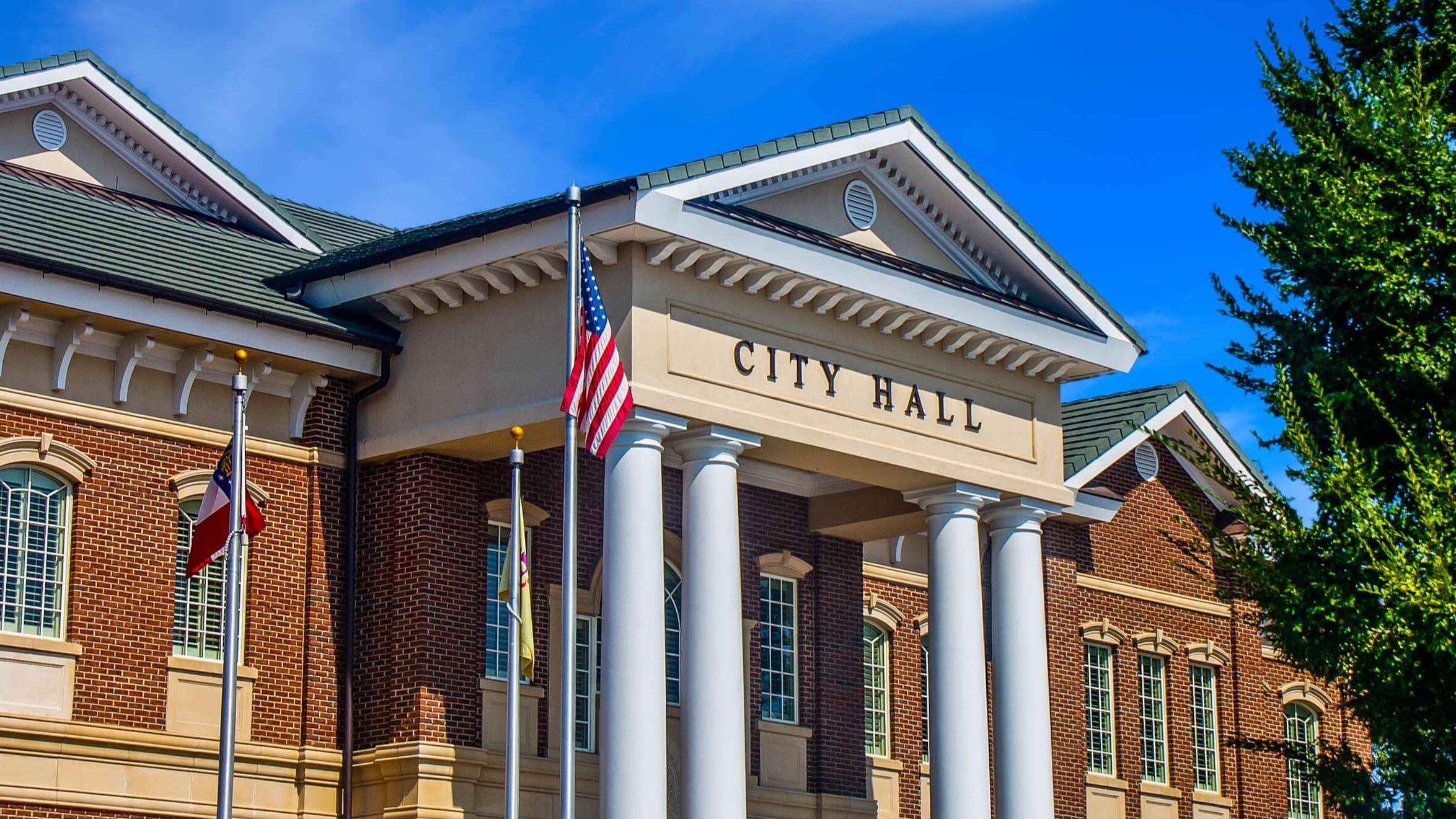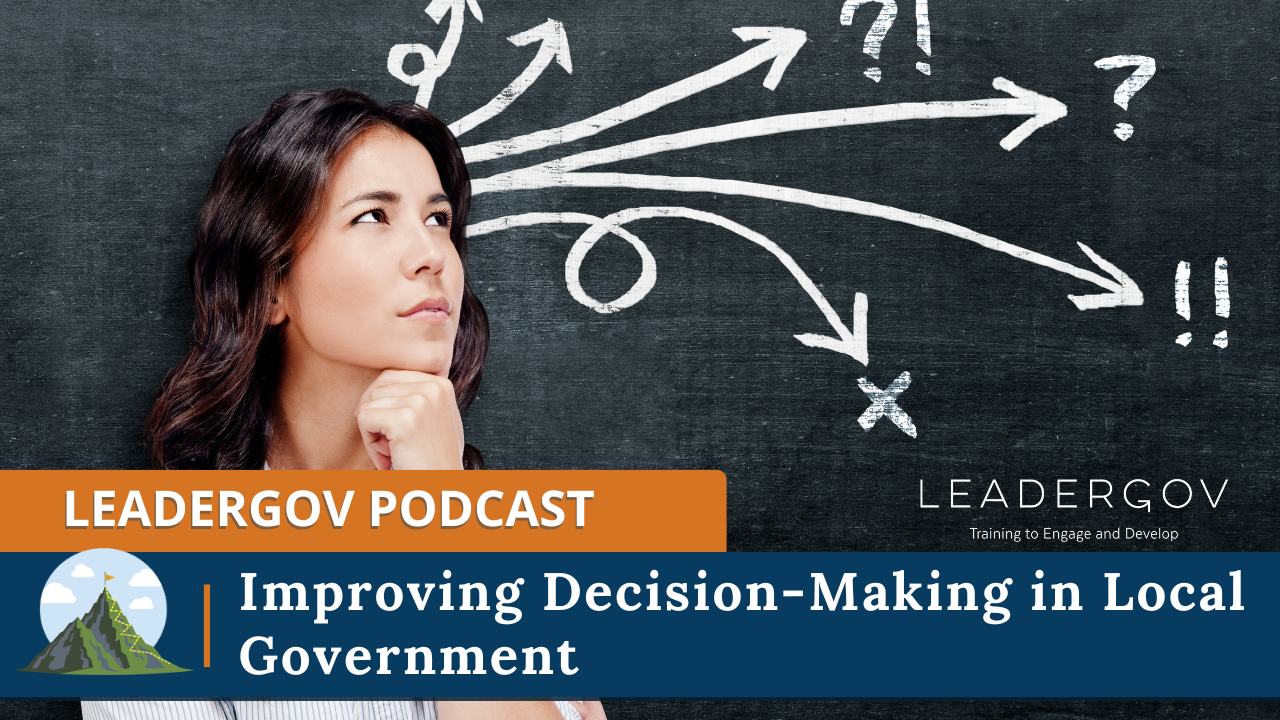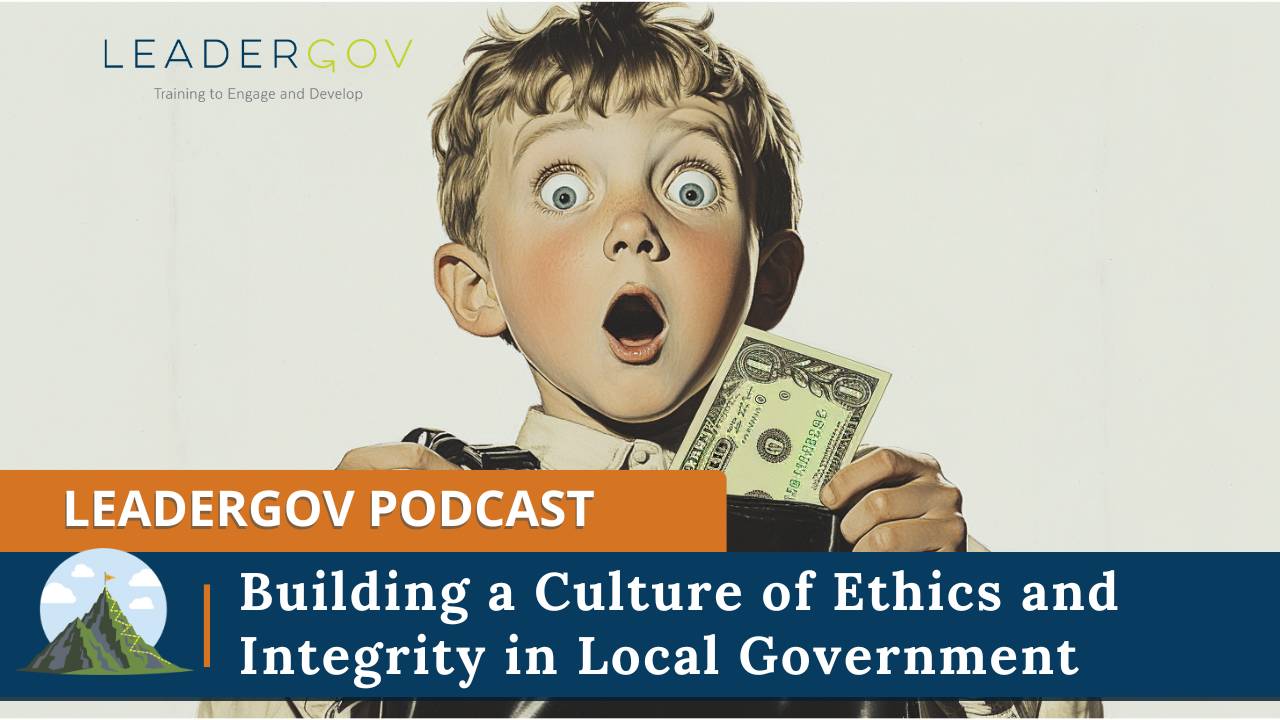Dealing with Change in Local Government

Leading Change in Local Government: Insights from Henrico County’s Terrell Hughes
Yesterday, LeaderGov welcomed city and county leaders from more than twenty states to our national workshop on Leading Change in Local Government. Our featured guest was Terrell Hughes, Director of Public Works for Henrico County, Virginia—a community widely respected for excellence in operations, employee engagement, and continuous improvement.
Co-founders Bill Stark and Lindsay Snyder interviewed Terrell about his real-world experiences leading organizational change, and he delivered a goldmine of practical wisdom for local government leaders. Below is a recap of the key themes he shared, expanded with context and lessons that apply to every city and county team.
1. Keep the Focus on the “Why” — Over and Over Again
Terrell stressed that effective change leadership begins with a relentless commitment to communicating the “why.”
In local government, employees often carry decades of experience with e...
Community Success Is Linked to City Council Effectiveness

Published in the Missouri Municipal Review Magazine Spring 2025
by Bill Stark and Scot Wrighton
Published in the Missouri Municipal League Magazine
All city councilmembers want to be effective in their roles, but not all succeed. This article focuses on three high-level essentials elected officials should consider as they strive to successfully lead their communities.
LeaderGov has been privileged to work with hundreds of local governments around the country and we have observed how successful and unsuccessful cities tend to operate. We have also observed how council effectiveness is closely linked to community success.
1. Good Councils Think Long-Term and Set Clear Goals and Norms for the Organization
We have been surprised to see many communities operate year to year without written strategic plans for where they want to go and how they plan to get there.
With periodic turnover in elected and key appointed offices, it can be difficult to obtain and retain operational polic...
How Delegation Builds Strong Teams

Delegation: Building Skills, Trust, and Future Leaders
In this month’s LeaderGov podcast, Mr. Bill Stark, co-founder of LeaderGov, and Ms. Lindsay Snyder welcomed Mr. Matthew Lue, Chief Financial Officer for the City of Columbia, Missouri, (population 130,000) to discuss the vital leadership practice of delegation.
Mr. Lue shared how effective delegation not only frees a leader’s time but also develops staff, builds trust, and prepares the next generation of leaders.
Mr. Lue, who oversees a Finance department of approximately 80 employees in a city with over 1,600 – 2,000 employees, emphasized that his responsibility is to “leave the city in better hands” by equipping his team for future leadership. Delegation, he noted, instills pride in employees, gives them ownership of important work, and helps them grow professionally.
Key Insights from Mr. Lue:
- Know your team: Leaders should spend time observing and engaging with employees to understand both their strengths and areas for g ...
Improving Decision-Making in Local Government

Improving Team Decision-Making in Local Government: Insights from Perla of Brownsville, Texas
Effective decision-making is crucial for any organization, and this is especially true in local government. In a recent episode of the LeaderGov Podcast, we had the privilege of hearing from Perla, the Director of Organizational Development and Human Resources for the City of Brownsville, Texas. With nearly a decade of experience in HR and organizational development, Perla shared valuable insights on how leaders can make better decisions that benefit their teams, organizations, and the communities they serve.
Learning from Mistakes: The Power of Reflection in Leadership
When asked about the toughest decision she’s made, Perla was open about the challenges she faced in the past. She recalled times when the pressure to fill vacant positions led her to make rushed hiring decisions. These quick decisions, made with the best of intentions to support her team, ultimately resulted in hiring...
Building a Culture of Ethics and Integrity in Local Government

Ethics and integrity aren’t just buzzwords in local government—they’re the foundation of public trust, team cohesion, and long-term success. When leaders prioritize ethical behavior, they create a culture where employees feel accountable, engaged, and proud of their work. But fostering this kind of culture doesn’t happen by accident—it requires intentional effort and strong leadership.
In a recent LeaderGov workshop, government leaders from across the country came together to explore practical strategies for promoting ethics and integrity in their organizations. Through insightful discussions and real-world examples, they uncovered key approaches to strengthening ethical standards within their teams.
Why Ethics Matter in Local Government
As William Whitson, a seasoned local government professional, put it, “working in local government is like "living in a fishbowl." Every decision, policy, and action is under public scrutiny. When integrity is compromised, the consequences ripple...
Struggling with Team Engagement? Here’s What Actually Works

In local government, an engaged team isn’t just a nice-to-have—it’s a necessity. When employees feel connected, valued, and motivated, productivity increases, collaboration thrives, and the organization better serves the community. Yet, many leaders struggle with engagement, facing challenges such as remote work, communication barriers, and team members who are resistant to change.
In a recent LeaderGov podcast episode, host Bill Stark sat down with Stan Wilson, Director of Health and Human Services and Community Development for Fulton County, Georgia. With extensive leadership experience across multiple local government agencies, Stan shared invaluable insights on how leaders can build engaged, high-performing teams. His practical approach, developed over years of leading diverse teams, provides a roadmap for any leader looking to foster a culture of engagement.
Understanding the State of Engagement
Before improving engagement, it’s crucial to assess where your team currently...
From Conflict to Collaboration: Unlocking Generational Strengths on Your Team

In today’s workplace, it’s common to see multiple generations working side by side. From Baby Boomers to Gen Z, each generation brings unique experiences, strengths, and—let’s face it—quirks. However, these differences can sometimes create friction, especially in local government settings where Baby Boomers are often overrepresented compared to the private sector. Instead of letting these differences create conflict, forward-thinking leaders can leverage them to build high-performing teams.
Navigating a multigenerational workplace can feel challenging, but it’s also a unique opportunity to strengthen teams by leveraging diverse strengths. To transform generational differences from sources of conflict into drivers of collaboration, leaders can focus on six key strategies:
- Understand Generational Dynamics – Recognize the strengths and quirks of Baby Boomers, Gen X, Millennials, and Gen Z.
- Foster Mentorship – Bridge gaps by encouraging knowledge-sharing between experienced leaders...
How Emotional Intelligence Helps Local Government Teams

In a recent LeaderGov workshop on Emotional Intelligence, leaders shared their perspective and best practices on effectively addressing their own emotions as well as emotional situations on their teams.
Underlying the leaders’ answers was a desire to improve their skill and the skills of their teams to address tension and emotion. LeaderGov recommended several tools to learn and grow EI for their teams including:
- Emotional Intelligence 2.0 Book Club
- Ted Talks
- LeaderGov’s EI Team Workshop
- LeaderGov’s Team EI Survey
- Team Discussion about EI
- Have individuals complete the free IHHP Assessment & MindTools EI Assessment
The workshop started by asking the local government leaders why they or their leadership teams sometimes do not lean into emotional situations at work. Leaders responded with the following ideas.
- Fear of conflict or confrontation.
- Lack of confidence in handling emotional situations effectively.
- Concern about making a situation worse.
- Belief that staying ...
City and County Leaders Speak on Clarity in Team Communication

Enhancing Communication in Local Government: Insights from Our Expert Webinar
Effective communication is crucial for the success of any organization, and local government is no exception. In a recent webinar, LeaderGov gathered over 150 leaders to discuss the challenges and best practices in team communication within local government settings. The insights shared provide a comprehensive look at where communication often breaks down, the typical communication cadence in departments, how information flows up and down the management line, and the impact of body language and tone on productive conversations.
Where Team Communication Usually Breaks Down
Leaders shared the following about communication breakdowns:
- Listening and Engagement: A significant number of participants highlighted issues with not actively listening or engaging in conversations. This lack of engagement can lead to misunderstandings and a breakdown in communication. Notably, over 50% of respondents mentioned that ...
Leaders Speak: Innovation on Local Government Teams

At LeaderGov's June 2024 Summit Leadership Workshop, the spotlight was on innovation. Dozens of local government leaders from across the country came together to share their insights, challenges, and strategies for fostering innovation within their teams. Here's a summary of the workshop discussions and feedback from these dedicated leaders.
Barriers to Innovation
Leaders identified several factors that hinder their teams from being more innovative:
- Fear of mistakes and lack of courage.
- Complacency and comfort with the status quo.
- Time constraints and heavy workloads.
- Resistance to change and lack of capacity.
- Poor communication and lack of initiative.
- Rules, regulations, and red tape.
- Budget constraints and lack of consensus.
- Cultural barriers between what's innovative and what's allowable.
Defining a Growth Mindset
When discussing a growth mindset, leaders highlighted the importance of:
- Openness to new ideas and willingness to share and consider them.
- Proactive be ...

